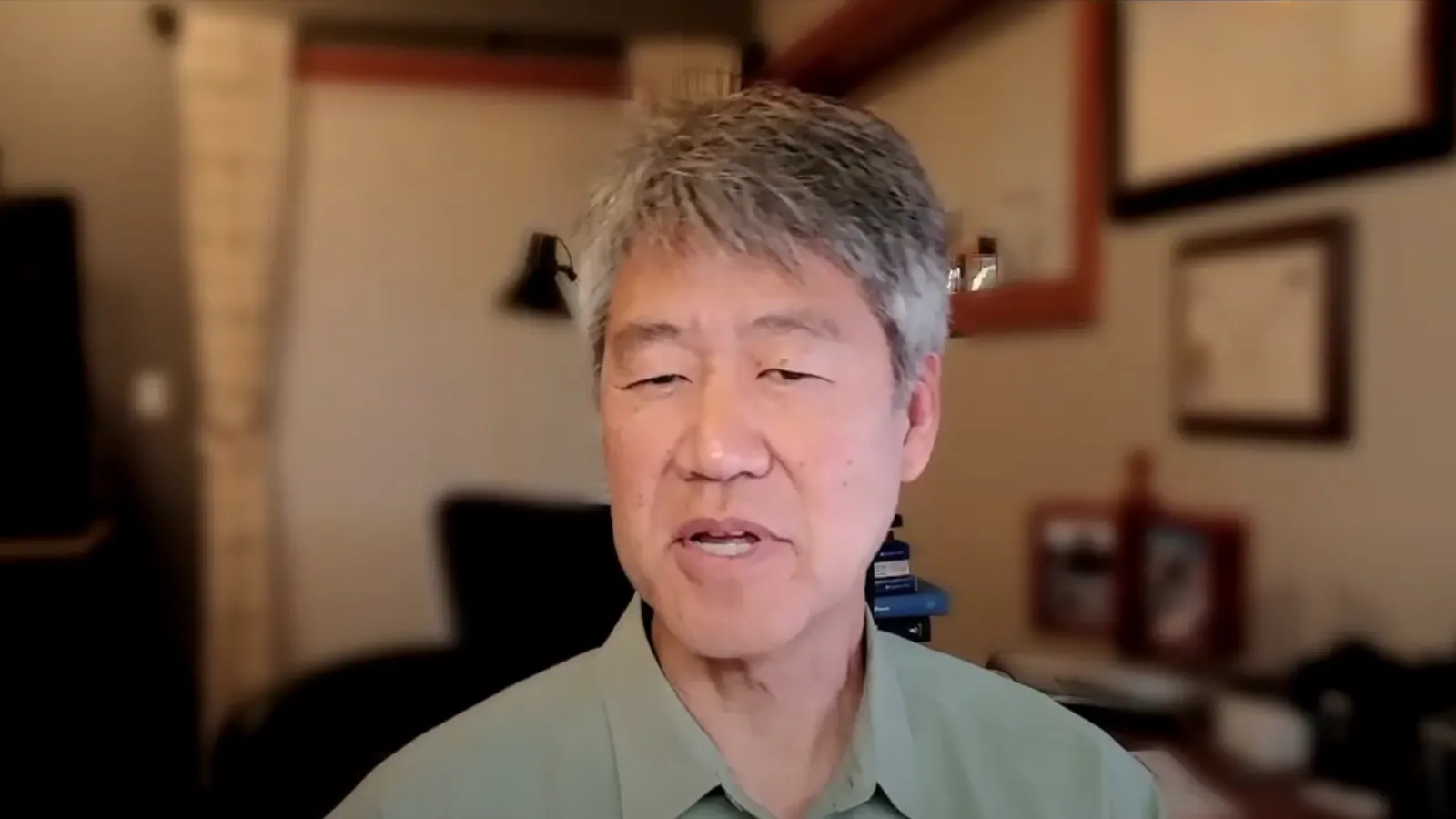The evolving role of generative artificial intelligence in healthcare was front and center at the annual Healthy Longevity Global Innovator Summit, with experts expounding on its potential to help people live longer, healthier lives. Delivering the conference keynote was Peter Lee, Microsoft Corporate Vice President of Research and Incubations, who had a personal link to the topic of AI and medicine.
Lee said ChatGPT-4 helped his family manage his elderly father’s health from afar, saying that the technology excels in explaining complex medical issues. He recalled that he and his sisters were trying to juggle the information they were being told by doctors and caregivers with limited time to speak with them. The stress of the situation caused the siblings' relationship to be frayed.
“Some of that was the fuel, and the fire ended up being our lack of understanding of these lab tests and reports,” Lee said, adding that it was empowering giving his father’s medical information and asking ChatGPT the three most important questions to ask when they speak to the doctor.
“The ability for GPT to give us guidance just brought the temperature down and really kept family harmony,” Lee said.
In terms of longevity and AI, Lee expressed his optimism that there are many areas where GPT-4 can help lead to new scientific discoveries, medicines, therapies, and diagnoses.
“The thing that I always gravitate towards is the empowerment of people themselves, as we live longer, and the people who care for us as we age,” Lee said. “For that, I really have a great deal of hope.”
Even though the concept of artificial intelligence dates back nearly a century, Generative AI has rapidly progressed in a short amount of time. OpenAI’s ChatGPT launched to the public in November of last year and is already the standard for AI chatbot development. Generative AI refers to AI tools that respond to user prompts and can create text, images, and videos based on those prompts.
While AI tools like ChatGPT have been colloquially referred to as chatbots, Lee emphasized how advanced GPT-4 is over its predecessors GPT-3 and GPT-3.5. However, despite GPT-4's impressive capabilities, Lee noted its limitations and emphasized that while human-like qualities can be attributed to it, it's still just a machine without consciousness.
"GPT-4 is not really human, of course," he said. "If you think of a computer as a machine that does perfect memory recall, perfect calculation, GPT-4 is not a computer either—it’s a new kind of tool that we’re all trying to figure out how to use."
Lee also pointed out that AI has proven to excel at identifying flaws in medical studies—but introduces those same flaws when asked to compose its own reports.
"GPT-4 was consistently able to outperform human reviewers to identify biases, harmful and non inclusive language in those submitted manuscripts in ways that the human reviewers couldn't do," he observed. "Even though, if GPT-4 is asked to write the same paper itself, it might be guilty of those same biases."
Lee praised the conference organizer for taking an active role in guiding the development and use of AI in healthcare.
"I’m thrilled that the National Academy of Medicine, in particular, is taking up the mantle on this, to understand enough that this can be a net positive benefit for us," he said.
Major corporations, including Microsoft, Google, Amazon, and Meta, have invested heavily in artificial intelligence over the last year. Microsoft has forged a deep relationship with OpenAI investing $10 billion in the company and integrating the ChatGPT into its Bing search engine and suite of Office tools, including a new digital assistant, dubbed Copilot, set to replace its previous digital assistant, Cortana. Microsoft’s investment in OpenAI has also brought the AI developer’s image generator Dall-E 3 to Microsoft Bing.
The collaboration between Microsoft and OpenAI hasn’t been without controversies. In July, OpenAI turned off access to its “Browse with Bing” feature for its subscription-based ChatGPT Plus service after discovering users were using it to get around website paywalls and privacy settings. In September, OpenAI reinstated Browse with Bing, with the service no longer limited to data before September 2021.
As generative AI becomes more ingrained in daily life, these tools have been put to less esoteric pursuits like processing large documents that otherwise would have taken human hours to do and allowing users to ask the document questions. In July, a British startup, Twinn Health, unveiled an AI platform designed to analyze MRI scans and detect diseases while still in their early stages.

